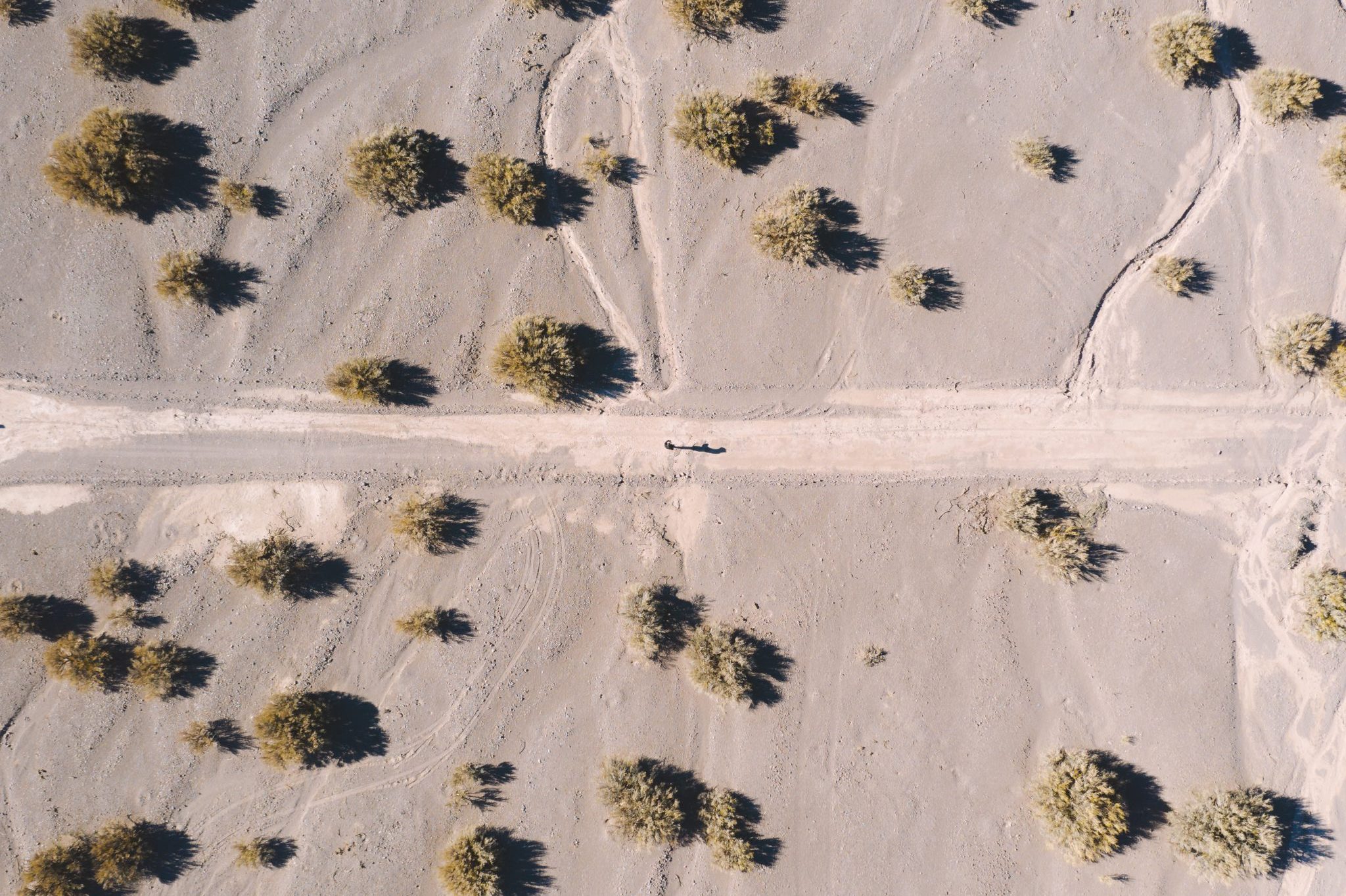What do you know of Lent? Probably, that it’s a time before Easter when people may give up their favorite indulgences. Social media, alcohol, chocolate, whatever their favorite weakness may be. Lent, as we know it in the tradition of the Christian Church, commemorates the forty days that Jesus spent in the wilderness before he began his ministry. The forty days of Lent ends ultimately on Easter Sunday.
Walking through the traditional Church Calendar means that we walk through the seasons of the church, creating rhythms of spirituality. When the Church observes the season of Lent, it is a decision to spend a spiritual forty days in the “wilderness” with Jesus. What does this mean? Well, during a time where the living in the current world feels so uncertain, the covid-19 virus has countries and cities on lock-down, this will not be a far-removed idea for us. The wilderness can symbolize a period of being lost, feeling uncertain, experiencing doubt and facing temptation, feeling isolated, living with restriction and ration, being in a wild and uncharted place. The Bible is full of stories of experiences in the wilderness. So as many of us stay in our homes or hospitals while others work in the frontlines of this global pandemic, “wilderness” feels somewhat appropriate.
In the book of Isaiah, there is a prophetic declaration that the Lord would be doing a new thing, involving a way in the wilderness, and rivers in the desert. Perhaps there is more to be discovered about the “wilderness” in this season of Lent, with Jesus as our guide. Let’s see how the wilderness was an important place of preparation, encounter, and transformation for the people of God in the past!
MIDBAR: The mouth of God in a solitary place
In the ancient times of the Bible, much of the land in the Middle East would have been undeveloped, desertland. So it was not an unusual thing to spend time in the “wilderness.” However, certain stories in the Bible seem to emphasize a period of time spent away from towns and developed areas, giving intentional meaning to the wilderness, rather than a mere geographical location. There are a few Hebrew words in the Bible for what we have translated to be the word “wilderness”. In most occasions, the original language for wilderness is “midbar”, and seems to mean solitary, barren, desert land. Interestingly, “midbar” in less occasions means “mouth” in the Hebrew language. There is certainly some significance to this double-meaning of the word, since, as we will soon see, the wilderness is often a place where God does speak to His people.
HAGAR
One of the first mentions of the wilderness, midbar, in the Bible was in the time of Abraham. His wife, Sarah, had been barren, so when her servant Hagar became pregnant, Sarah despised her and treated her harshly, causing her to flee to the wilderness. Through this time in the wilderness, an angel appeared to Hagar, and she learned that God saw her and so named the place “Beer-lahai-roi”, which means “the well of the Living One who sees me”. She was instructed by the angel to name her son “Ishmael”, which means “God hears.”
…In the wilderness, we become aware that God is aware of us…
JOSEPH
The next time we see the word midbar in the scriptures, is when Joseph spent a short time in the wilderness after his brothers threw him into a pit where he remained until he was sold as a slave to a passing caravan. This experience, for him, signified a massive transition from home and family into a land very foreign to him. It was the starting point of what would be many years of troubles, but would lead him ultimately to a place of great power in the empire of Egypt, and salvation for his family. For Joseph, the wilderness was the unexpected transition into the fulfillment of dreams.
….In the wilderness, we transition…
MOSES
After growing up in Egyptian royalty and then learning that he was actually an Israelite, of the family of Israel (Joseph’s father), Moses got into some trouble. He fled to a town called Midian, where he married and settled for a time. While leading a flock of sheep out into the west side of the wilderness, midbar, the angel of the Lord appeared to him in a flame of fire in the midst of a bush. Moses saw the bush, noticed that it was on fire but was not burning up, and out of that bush the Lord spoke to him. The Lord declared that He had seen the affliction of His enslaved people, the Hebrews, and then God commissioned Moses to go back to Egypt and free the Israelites. Once again, in the wilderness, God appears and reveals Himself as a God who sees, and in addition, a God who acts on behalf of God’s people.
…In the wilderness, God may reveal what he cares about, and invite us to be a part of it…
ISRAELITES
Moses returned to Egypt after his commissioning in the wilderness, and after a long, arduous and traumatic process, the Hebrew (Israelite) people were able to flee from Egypt to journey to a land that the Lord promised would be “a good and broad land, flowing with milk and honey.” As the Egyptian ruler pursued them to destroy them, the Lord’s monumental miracle of parting the Red Sea allowed them to pass safely through it, and then drowned the Egyptian soldiers. Following this spectacular act of God to deliver His people, Moses led the people into the midbar. It was here that “they looked toward the wilderness, and behold, the glory of the LORD appeared in the cloud.” When they were hungry, God covered the ground of the wilderness with bread from heaven every morning. When they became thirsty, the Lord provided water from a rock in the midst of the wilderness. The wilderness was named Massah and Meribah, because even in the midst of God’s provision, they doubted, they quarreled, and they had a really difficult time grasping the freedom that God was leading them into. Here in the wilderness, the people are tested in their faith, Moses is tested in his leadership, and the people put God to the test with their doubts.
Hosea 11:4 says:
I led them with cords of kindness, with the bands of love,
and I became to them as one who eases the yoke on their jaws,
and I bent down to them and fed them.
…In the wilderness, we are tempted to miss the ways that God is loving us and providing for us…
On the third new moon after the people had left Egypt, they came into the wilderness of Sinai. God gave the ten commandments and the law in the middle of the wilderness, appearing in smoke, with thunder and lightning. Once again, God revealed himself in the Wilderness. He met with Moses twice, the second time proclaiming himself to be “merciful, gracious, slow to anger, abounding in steadfast love and faithfulness.” There is a recurrence of the Lord physically appearing, showing up, making himself known, and speaking, in the midbar.
….In the wilderness, God makes himself known…
It is in the midbar that the first Tabernacle was built. This was a place to be where God would meet with His people, a place set apart for worship and sacrifice. There would be future places of worship and sacrifice, but this was the first time that the Lord gave specific building instructions, consecrated the Levites to be priests, and set up the sacrificial order for the atonement of sins. Now that God had given a law to His people in the wilderness, both the giving of the law and the place of atonement for disobeying the law, would be in the midbar.
…The wilderness is a place of meeting God with worship and sacrifice…
In the midbar, God showed himself to the people with powerful thunders, the thrilling parting of the sea, and terrifying pillars of fire. God also revealed himself to the people by the quiet appearing of food on the ground in the mornings as they woke, by the fact that their shoes never wore out, by the way water flowed from a rock when they were thirsty. And yet, the people complained, they doubted, they were angry. So because of that, for forty years, the wilderness was where the Israelites would stay, and the entire generation who had been slaves in Egypt ultimately died, and it was their children to entered the promised land.
…In the wilderness, we must shed the old self. The complaining, doubting, angry self….
DAVID
David, the King described to be “a man after God’s own heart,” spent his early years in the wilderness, tending sheep. In a time of war, the most unlikely of the sons of Jesse insisted that he was prepared to meet the great Philistine giant by recalling his days tending sheep. Anytime a lion or a bear would approach to take a lamb, he would wrestle the lamb from the mouth of the animal, and would kill the beast. Sure enough, despite the ridicule he received, the giant was struck down with one small stone that David flung. David’s preparation for the mighty victory of the defeat of the Philistines, was alone in the wilderness, tending sheep.
…The wilderness is a time of preparation.
Later, David was forced to stay in the wilderness for a time, when King Saul was resolved to kill him. In this wilderness, his character was tested on many accounts. When David’s enemies were defeated, he worshiped, writing a song that we still read today. “In my distress I called upon the Lord; to my God I cried for help. From his temple he heard my voice, and my cry to him reached his ears.” He described a vision of smoke and fire coming from the Lord, as He bowed the heavens and came down, riding on a cherub, thundering with hailstones and coals of fire. David paints a picture of the power of God that he experienced, declaring “He took me; he drew me out of many waters. He rescued me from my strong enemy, and from those who hated me.” God’s power and victory is on display again for a man of God, in the wilderness. The duplicity of the word “midbar” is seen in Psalm 29:8, “The voice of the Lord shakes the wilderness”.
…In the wilderness: sing, write, create, express, love….because nothing is wasted there.
ELIJAH
Elijah, one of the greatest prophets that has ever lived, also had a remarkable wilderness experience. He had just performed a showdown against the prophets of Baal, proving that their gods were powerless against the Lord God. An exceedingly evil woman, Jezebel, in her anger threatens Elijah’s life. Being terrified, he fled to the wilderness. Asking God if he could die, he laid down to sleep. An angel came to him, touched him and provided food and water for him. Elijah eats and sleeps. A second time, an angel touches him, providing food for him and saying: “Arise and eat, for the journey is too great for you.” Elijah is able to go in strength, and is sustained for forty days by that encounter in the midbar.
…In the wilderness, we are fed. We rest. And it’s no ordinary food, it’s real, lasting sustenance.
JEHOSHAPHAT
The Ammonites and Moabites were coming to attack Judah and Jerusalem, when the Lord gave the promise to King Jehoshaphat that in the Wilderness, they would “see the salvation of the Lord”. A mighty display of God’s power was shown on that battle ground, when the Lord’s people marched into the wilderness, obeying their only instruction – which was to sing and praise. They repeated the song, “give thanks to the Lord, His love endures forever.” That day, it was the Lord who destroyed their enemies.
…In the wilderness, you never know what might happen when you worship…
SONG OF SOLOMON
Song of Solomon, a love story, paints the following poetic picture: a bridegroom coming out of the wilderness like columns of smoke, perfumed with myrrh and frankincense, and the bride coming up out of the wilderness leaning on her beloved.
…the wilderness is for learning to lean on our Beloved.
THE PROPHETS
We begin to see in the book of the prophets that it’s in the wilderness that God intends to bring ultimate redemption. “For the Lord comforts Zion; he comforts all her waste places and makes her wilderness like Eden, her desert like the garden of the Lord; joy and gladness will be found in her, thanksgiving and the voice of song.”
The book of Isaiah is filled with the most beautiful, abundant prophecies concerning the wilderness. Prophecies about the Holy Spirit being poured out and the wilderness becoming fruitful, that justice will dwell in the wilderness (32:16), that the wilderness would be glad, that waters would break forth in the wilderness. What profound promises!
One of the paramount Biblical prophetic proclamations comes from Isaiah 40, a voice cries; “In the wilderness prepare the way of the Lord; make straight in the desert a highway for our God…And the glory of the Lord shall be revealed, and all flesh shall see it together, for the mouth of the Lord has spoken.”
Joel also prophesies that the pastures of the wilderness would be green, that the Lord would deliver His people from shame, make their lives fruitful, and would pour out His spirit on all flesh. There is a direct correlation of the wilderness being redeemed and made fruitful.
Hosea speaks about the Lord’s mercy on Israel, where the Lord promises to allure her (Israel) into the wilderness, to speak tenderly to her, and that he would make a covenant with her, with steadfast love and mercy, and then, she would belong to Him forever.
…In the wilderness, our lesser-than gods and our crutches are exposed for what they are. When we experience God’s tender love in the wilderness, the promises of fruitfulness, justice, joy and gladness become our song.
OUR MESSIAH
The New Testament is written in Greek and so the word for wilderness is erēmos, which carries the meaning of solitary, lonely, barren, uncultivated, desert. John the Baptist makes his preparation for ministry in the wilderness, fulfilling the prophecy as one who would make way for the Messiah. Jesus himself, the fulfilment of all prophecies and the very essence of God in human flesh, goes out into the wilderness for forty days after his baptism and is tempted by the devil three times. We do not know everything that transpired during these forty days, but we do know that it was the gateway to his season of ministry, miracles, death and resurrection.
…Walk through the wilderness with a sense of preparation, and maintain your faithfulness. Who knows what lies on the other side?
WILDERNESS MIRACLES
In the wilderness, my ancient fathers and mothers heard the voice of God. They experienced God’s thundering power, and God’s gentle provisions. Transformation and change occurred, slavery mindsets were shed, songs were written, testing and temptation was wrought. It was a place of miracles, small and large. What small miracles can we find today?
…May God’s grace allow us to walk this Lenten journey and come out on the other side, “leaning on our beloved.”
![]()
Sources:
Puthussery, Johnson. Days of Man and God’s Day. Roma: Pontificia Universita Gregoriana, 2002.
Ryken, Leland, et al. Dictionary of Biblical Imagery. Intervarsity Press, Downers Grove, Illinois: 1998.


